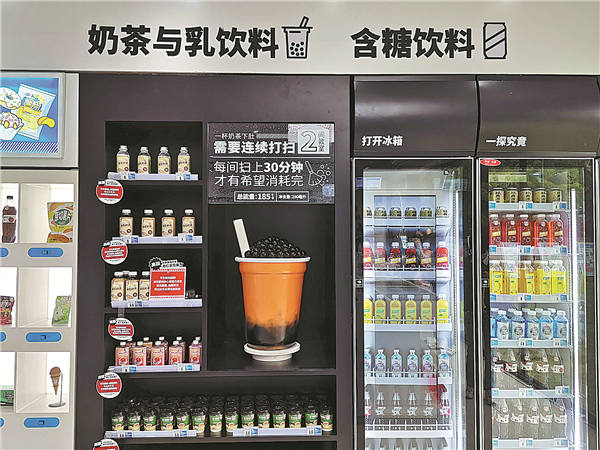Concept store offers children food for thought


Anuradha Narayan, chief of child health and development at UNICEF China, notes that obesity is "a growing threat to children's well-being around the world and in China".
Being overweight or obese has many adverse effects, such as having a higher risk of contracting noncommunicable diseases, a higher risk of developing emotional and behavioral problems, as well as having an economic impact on individuals, families and society.
Data shows that nearly 20 percent of children between 6 and 17 years of age, and over 10 percent of children under the age of 6 in China are obese or overweight.
A changing environment, characterized by the increased availability of cheap, highly processed foods and beverages, together with the aggressive marketing of these products to children, can contribute to the rapid growth of children who are overweight or obese, McCaffrey says.
Containing childhood obesity is an important focus of the Chinese government. In Chengdu, the local government attaches great importance to children's nutrition and health.
At present, the city is launching a campaign on childhood obesity control to improve the nutritional environment of students and the healthy growth of children and teenagers, says Jia Yong, deputy director of the Chengdu Municipal Health Commission.
The mock store will operate permanently in the activity center of Chengdu Youth Palace. Similar stores will be unveiled in other Chinese cities such as Weihai, Shandong province, and Enshi in Hubei province, to improve nutritional literacy among school-age children and their parents.






































